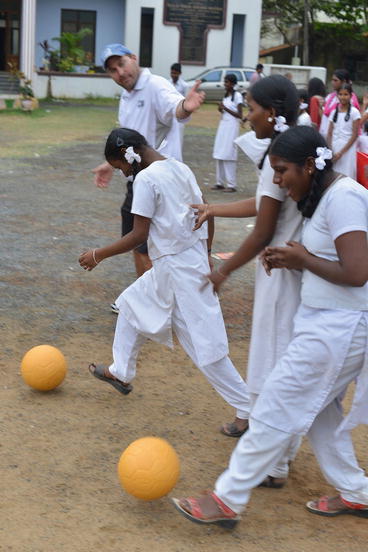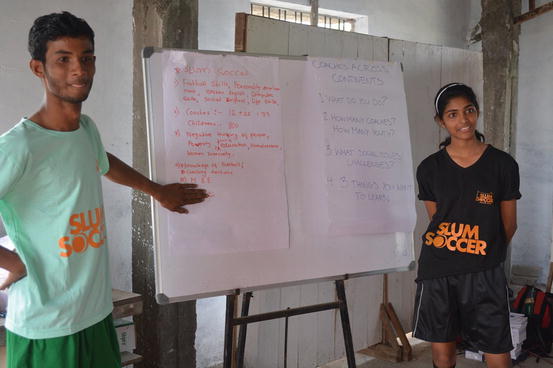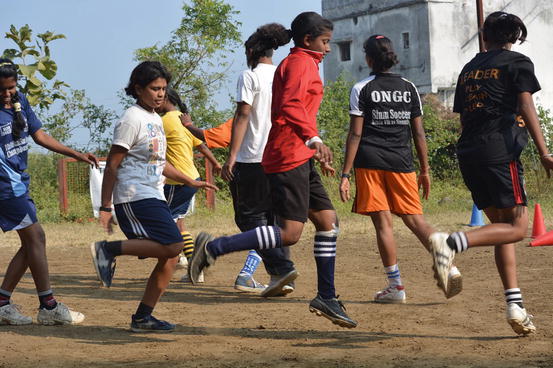Fig. 16.1
Slum Soccer sessions being delivered

Fig. 16.2
Slum Soccer sessions being delivered

Fig. 16.3
Slum Soccer sessions being delivered

Fig. 16.4
Slum Soccer sessions being delivered
On identifying the communities it decides to work with, Slum Soccer establishes centers based on ease of access for participants and ensures that such centers are a safe space for all participants to come and play.
Slum Soccer always establishes centers for the participants in their neighbourhood, within reach for their parents/guardians. Since the coaches are mostly from their own communities, this gives the parents the assurance that the girls and young women are in the care of people they are familiar with. We ensure that there are sufficient numbers of coaches to cater for the young people (ratio 1:5) in these sessions, which ensures that there is individual attention within controlled boundaries.
At present, Slum Soccer has 30 Community coaches running programs, with each coach dealing with around 20–30 young people per session. Each coach is also responsible for following monitoring and evaluation guidelines to then assess the impact of the programs. Ten senior coaches and leaders work to develop the curriculum for new communities and to introduce new games/activities based on feedback received from each of the centers. In addition to this, there are 15 volunteers supporting in the administration, marketing, and fundraising departments.
At the end of the 24-week program, a majority of the participants who have graduated from the program continue to work with Slum Soccer, participating in various tournaments or workshops. Participants who have demonstrated leadership skills and a willingness to improve their communities are identified as young leaders and guided through Slum Soccer’s Young Leader Program. They are developed to be leaders and are given responsibilities at their respective centers. The skill set of such leaders is identified and they are also put in various administrative departments of Slum Soccer.
This self-sustainable model of developing our own community coaches and staff from within the pool of participants is one of the organization’s priorities because the coaches know exactly what the community needs and how to work with the next generation of youth. They also serve as role models and inspire the young people in their community to take part in Slum Soccer’s program.
A small proportion of the participants have gone on to become professional footballers, both playing at club level and representing their respective districts and states. Two footballers, Yashashree and Akansha, have represented Maharashtra in national tournaments.
Outcomes and Evaluation
Outcomes
Through its full fledged football coaching camps, educational and healthcare workshops and societal development programs, Slum Soccer has brought about a positive influence to the lives of nearly 30,000 female participants in over 63 districts all around the country (overall outreach including men is 100,000).
Stay updated, free articles. Join our Telegram channel

Full access? Get Clinical Tree




